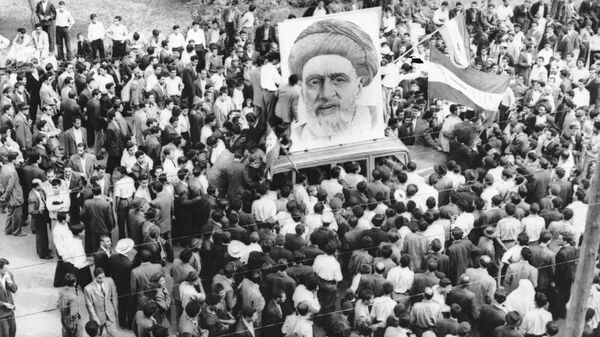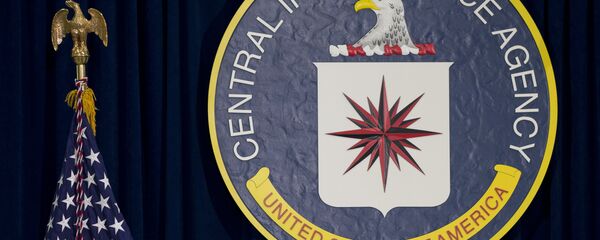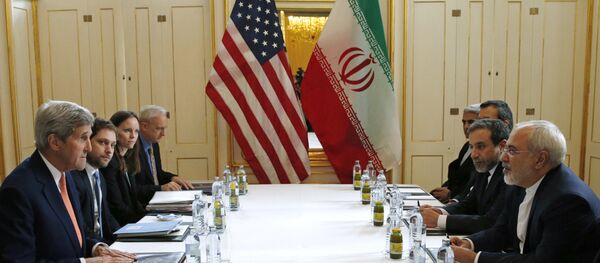Mosaddegh was the head of the democratically elected government from 1951 to 1953 when he was overthrown in a regime change operation orchestrated by the US Central Intelligence Agency (CIA) and their British counterparts.
While it has long been public knowledge that American and British intelligence agencies had had a hand in the Mosaddegh ouster on August 19, 1953, the CIA officially confirmed its role in the controversial operation only 60 years later, in August 2013.
In June 2017, the State Department released a 1,007-page report consisting of declassified letters and diplomatic cables from the years leading up to the coup as part of its Foreign Relations of the United States (FRUS) series.
For its part, the UK has long appeared to be highly reluctant to shed any light on its role in the planning and executing the 1953 regime change operation. The National Security Archive's preamble to the newly released documents on the matter cites London's apparent requests to Washington not to expose Great Britain's role in the coup.
"It is not clear whether British officials were ultimately consulted about the release of these particular documents in 2017," the preamble remarked.
Still, two memoranda dated November 26 and December 3, 1952, leave no doubts about the UK's specific interest in toppling Mosaddegh. Both top secret memos were entitled eloquently: "British Proposal to Organize a Coup d'etat in Iran."
"The British Foreign Office has informed us that it would be disposed to attempt to bring about a coup d'etat in Iran, replacing the Mosadeq Government [spelling used in original material] by one which would be more 'reliable,' if the American Government agreed to cooperate," Assistant Secretary of State Henry Byroade wrote to his superior, Deputy Under Secretary of State H. Freeman Matthews, in November 1952.
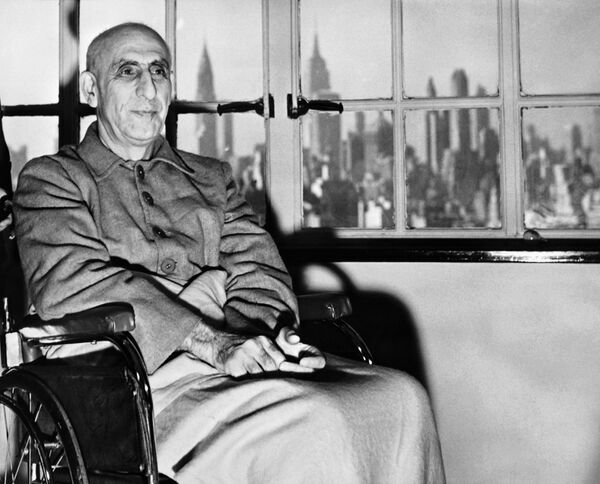
The question then arises as to why the British wanted to replace the democratically elected Iranian prime minister.
As RIA Novosti contributor Vladimir Ardayev noted, in the 20th century Middle Eastern crude remained a major factor determining the US and UK policy in the region with American and British oil corporations maintaining control over the Mideast hydrocarbon reserves.
In response, Prime Minister Mosaddegh nationalized Iran's oil industry in early 1951, dealing a heavy blow to Great Britain's interests.
Still, the memoranda indicated that the British tried to convince the US, which was reluctant to throw its weight behind the controversial operation that their goal was to prevent the Communists from taking power in Iran.
The British government insisted that "a coup d'etat… is probably our best chance to save Iran."
"While the [British] Embassy representative (Bernard Burrows) did not give details of the British reasoning, it appears that the Foreign Office has come to this conclusion because (a) British intelligence reported that an organization which could handle the job exists in Iran, and (b) the Foreign Office sees virtually no prospect of an oil settlement with Mosadeq and has little hope that his Government will be able to prevent a Communist takeover," Byroade wrote.
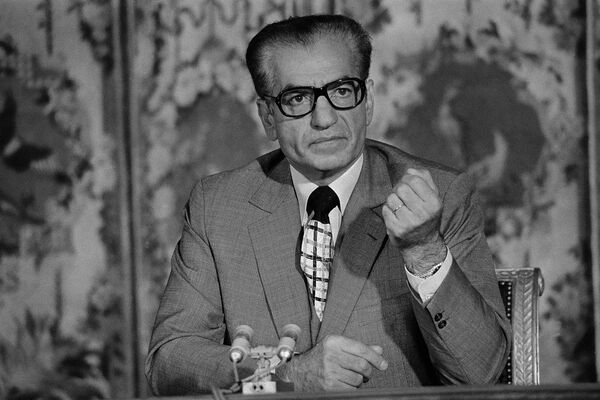
The second memo, dated December 3, outlined the position of Sir Christopher Steel, minister at the British Embassy, who insisted that either Mosaddegh would be "replaced by someone disposed to take definite steps against the Communists" or the Communists "would gradually take control" in Iran.
"The British view was that Mosadeq was very unlikely to do anything effective against the Communists," the memo read, adding that although London admitted that the regime change operation "had elements of uncertainty and danger" it might be "less dangerous than continued reliance upon the Mosadeq government as a barrier against Communism."
Furthermore, Byroade highlighted that the British plan was in clear contradiction with Washington's policy aimed at assisting the Mosaddegh cabinet.
"One element which must be taken into consideration in making our decision is that we are presently thinking of unilateral action to assist the Mosadeq Government in the event that the British do not agree to an oil settlement acceptable to Mosadeq," he wrote.
"It would be virtually impossible to proceed with plans to overthrow Dr. Mosadeq while at the same time giving him open assistance," the assistant secretary of state highlighted.
Byroade warned that by adopting the British plan Washington would jeopardize the American efforts "to formulate a new oil settlement proposal which might be acceptable to the Iranians and the British."
"Even if it [the coup d'etat] were successful, the proposed coup might in the long run work to our disadvantage not only in Iran but in other parts of the world, especially the Near East," the American diplomat foresaw.
Byroade's warning turned out to be prophetic.
Ardayev pointed out that although the major goals of the coup organizers were achieved, the situation led to a series of undesirable events.
"After toppling Mosaddegh and defeating the Communists, the organizers of the coup also suppressed other liberal forces in the country," the journalist highlighted. "As the clergy gained more and more power in Iran, the anti-Western sentiment began to grow."
"In 1979, it resulted in the Islamic revolution, the seizure of the US embassy, and the suspension of diplomatic relations between Iran and the United States," Ardayev recalled.
The question remains open as to how the British managed to convince the US to carry out the regime change operation that contradicted America's national interests.
